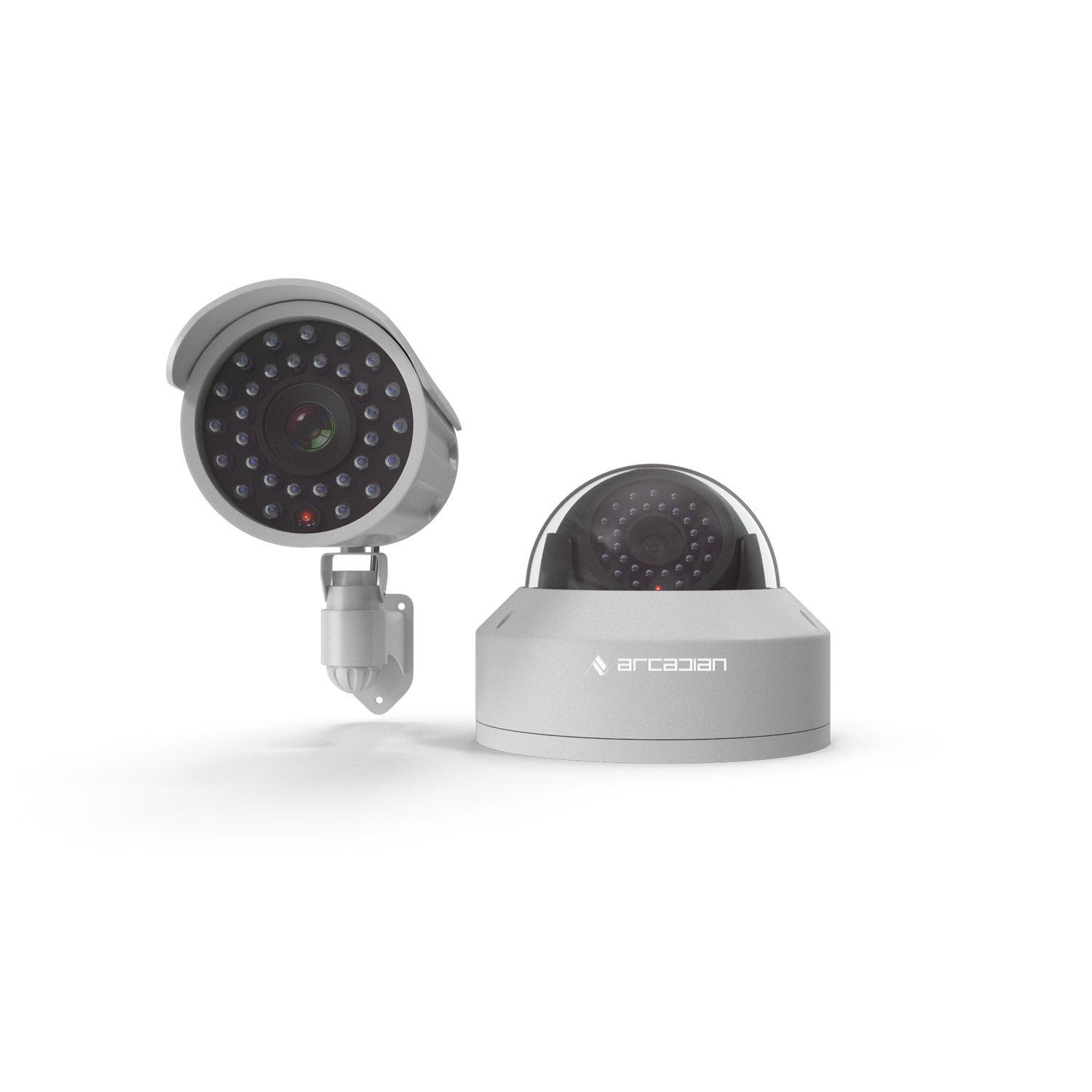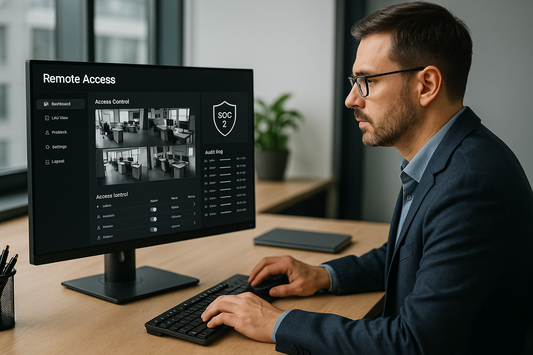Understanding the Role of AI in Modern Loss Prevention Strategies
Loss prevention has always been a significant concern for businesses, especially in retail, where shrinkage due to theft, fraud, and human error can severely impact profit margins. Traditionally, businesses have relied on security personnel, surveillance cameras, and auditing practices to prevent losses. However, with advancements in technology, artificial intelligence (AI)...

Loss prevention has always been a significant concern for businesses, especially in retail, where shrinkage due to theft, fraud, and human error can severely impact profit margins. Traditionally, businesses have relied on security personnel, surveillance cameras, and auditing practices to prevent losses. However, with advancements in technology, artificial intelligence (AI) is now revolutionizing the way businesses approach loss prevention. This blog post explores the role of AI in modern loss prevention strategies, its benefits, applications, and the future of AI-driven security.
1. What Is Loss Prevention?
Loss prevention refers to the strategies and practices businesses implement to reduce the risk of theft, fraud, and operational errors. In retail, loss prevention is crucial due to shrinkage, which is the difference between the inventory a retailer has on record and the actual physical inventory. This gap can be caused by shoplifting, employee theft, fraud, supplier errors, and administrative mistakes.
Key Components of Traditional Loss Prevention:
- Surveillance Systems: Security cameras are used to monitor activities and deter theft.
- Security Personnel: Security guards patrol stores or monitor camera footage to detect suspicious activities.
- POS Monitoring: Point-of-sale (POS) systems track sales data and transactions to identify discrepancies or fraud.
- Audits and Inventory Checks: Regular audits and stock checks are conducted to ensure inventory accuracy and detect shrinkage.
While these strategies remain essential, AI has introduced new possibilities that enhance loss prevention, making it more effective and proactive.
2. The Role of AI in Modern Loss Prevention
AI has become a game-changer in loss prevention by enhancing the accuracy, efficiency, and scalability of traditional methods. Here’s how AI is shaping modern loss prevention strategies:
1. Real-Time Theft Detection: AI-powered video analytics can monitor store activities in real-time and detect unusual behaviors, such as shoplifting or employee theft. The system can identify specific actions that indicate theft, such as an individual repeatedly looking at cameras, concealing items, or loitering in high-theft areas.
2. Predictive Analytics for Fraud Prevention: AI uses predictive analytics to analyze historical data and identify patterns of fraudulent activities. For example, AI can detect trends in voided transactions, excessive discounts, or repeated refunds that may indicate employee fraud. This allows businesses to take proactive measures before significant losses occur.
3. Behavior Analysis: AI systems can analyze customer and employee behavior using machine learning algorithms. By identifying patterns, AI can flag potentially suspicious actions such as frequent returns, over-voiding of transactions, or customers visiting high-theft zones multiple times without making a purchase.
4. Inventory Management and Loss Tracking: AI-driven systems can automatically track inventory levels, helping retailers reduce losses due to mismanagement or supplier errors. AI can detect discrepancies between POS data and actual stock levels, ensuring that any loss is identified in real-time.
5. Cash Register and POS Monitoring: AI can monitor transactions in real-time, flagging any irregularities that could indicate employee theft, such as under-ringing or price modifications. AI can cross-check POS data with video footage to ensure that all transactions are legitimate.
3. Applications of AI in Loss Prevention
AI offers numerous applications in modern loss prevention, making it a versatile tool for a variety of industries. Here are some specific ways AI is being applied to improve loss prevention strategies:
-
Shoplifting Detection in Retail: AI-powered surveillance systems can detect common shoplifting behaviors, such as concealing items, switching price tags, or entering restricted areas. When the system identifies suspicious activity, it can immediately alert security personnel.
-
Employee Fraud Detection: AI analyzes employee behavior and transaction patterns to detect potential fraud. For instance, an employee who frequently processes refunds or voids transactions might trigger an alert for further investigation.
-
Automated Audits: AI can conduct automated inventory audits, ensuring that any discrepancies between recorded stock levels and actual inventory are detected immediately. This reduces the need for time-consuming manual audits and minimizes operational losses.
-
Facial Recognition for Repeat Offenders: AI-powered facial recognition technology can identify known shoplifters or individuals flagged for suspicious activities, allowing businesses to take preventive action before theft occurs.
-
Predictive Maintenance for Security Systems: AI can monitor and predict when surveillance equipment might fail, ensuring that businesses maintain full surveillance coverage at all times. Predictive maintenance also reduces downtime and ensures that loss prevention measures remain active.
4. Benefits of AI in Loss Prevention
1. Increased Accuracy: AI systems offer far greater accuracy than traditional methods. They can detect subtle patterns and behaviors that humans may overlook, significantly reducing false positives and improving the identification of actual threats.
2. Proactive Prevention: Unlike traditional loss prevention methods that are often reactive, AI allows businesses to take proactive measures by identifying risks and potential threats before significant losses occur. Predictive analytics helps businesses stay one step ahead of fraudsters and thieves.
3. Real-Time Monitoring: AI provides real-time monitoring and alerts, enabling businesses to respond to incidents immediately. This reduces response times and minimizes potential losses from theft or fraud.
4. Cost-Effective Security: While AI systems may require an initial investment, they offer long-term savings by reducing the need for manual labor, improving inventory accuracy, and minimizing shrinkage. AI-driven automation allows businesses to operate more efficiently, reducing overhead costs.
5. Scalability and Adaptability: AI systems can easily scale to accommodate businesses of all sizes. Whether a retailer operates a single store or a global chain, AI can be customized to meet specific needs. Additionally, AI is adaptable, meaning it can continuously learn and evolve as new threats and behaviors emerge.
5. Challenges and Considerations in Implementing AI for Loss Prevention
While AI offers numerous advantages for loss prevention, there are also challenges and considerations to keep in mind:
-
Initial Setup Costs: Implementing AI-powered systems requires an upfront investment in hardware, software, and infrastructure. However, the long-term savings in reduced losses and operational efficiency often justify the costs.
-
Privacy Concerns: AI systems, especially those involving facial recognition and behavior analysis, raise concerns about customer and employee privacy. It’s crucial for businesses to comply with privacy laws and ensure transparency in how AI technologies are used.
-
Data Security: As AI relies on large datasets, it’s essential to ensure that this data is secure. Businesses must implement robust cybersecurity measures to protect sensitive information and prevent data breaches.
-
Employee Training: To maximize the effectiveness of AI systems, employees must be trained to understand how the technology works and how to respond to AI-generated alerts. This requires continuous education and collaboration between AI systems and human operators.
6. The Future of AI in Loss Prevention
The future of AI in loss prevention is promising, with several exciting advancements on the horizon:
-
Enhanced Machine Learning Models: As AI and machine learning technologies continue to evolve, loss prevention systems will become even more accurate in detecting and predicting theft, fraud, and errors. AI will be able to analyze more complex datasets and recognize subtle behaviors that may indicate a threat.
-
Increased Integration with IoT: AI will increasingly integrate with Internet of Things (IoT) devices, such as smart shelves and RFID tags, to provide a more comprehensive approach to loss prevention. These connected devices will enable real-time tracking of inventory and customer behavior.
-
Advanced Facial Recognition and Biometrics: AI-powered facial recognition technology will improve in accuracy, making it easier to identify known offenders and prevent repeat incidents of theft. In addition, biometric security measures, such as fingerprint or retinal scanning, may become more commonplace in securing retail environments.
-
Predictive Policing and Data Sharing: AI will play a role in predictive policing, where law enforcement agencies use AI-driven data analysis to anticipate criminal activity and allocate resources accordingly. This could lead to greater collaboration between businesses and law enforcement to prevent theft and fraud.
Conclusion
Artificial intelligence is transforming loss prevention by making it more accurate, proactive, and efficient. From detecting shoplifting in real time to predicting employee fraud and automating inventory audits, AI offers a wide range of applications that significantly enhance modern loss prevention strategies. While challenges such as privacy concerns and initial setup costs exist, the benefits of AI-powered loss prevention systems far outweigh the drawbacks. As technology continues to evolve, AI will play an even greater role in safeguarding businesses against theft, fraud, and operational losses.
SEO Keyword List:
- AI in loss prevention
- Loss prevention strategies
- AI-powered video analytics
- Retail loss prevention
- Employee fraud detection
- Predictive analytics for fraud
- Inventory management with AI
- Cash register fraud detection
- Automated inventory audits
- Real-time theft detection
- Facial recognition for loss prevention
- AI and machine learning in retail
- Proactive loss prevention
- Retail shrinkage solutions
- Data security in AI

Security is like insurance—until you need it, you don’t think about it.
But when something goes wrong? Break-ins, theft, liability claims—suddenly, it’s all you think about.
ArcadianAI upgrades your security to the AI era—no new hardware, no sky-high costs, just smart protection that works.
→ Stop security incidents before they happen
→ Cut security costs without cutting corners
→ Run your business without the worry
Because the best security isn’t reactive—it’s proactive.







